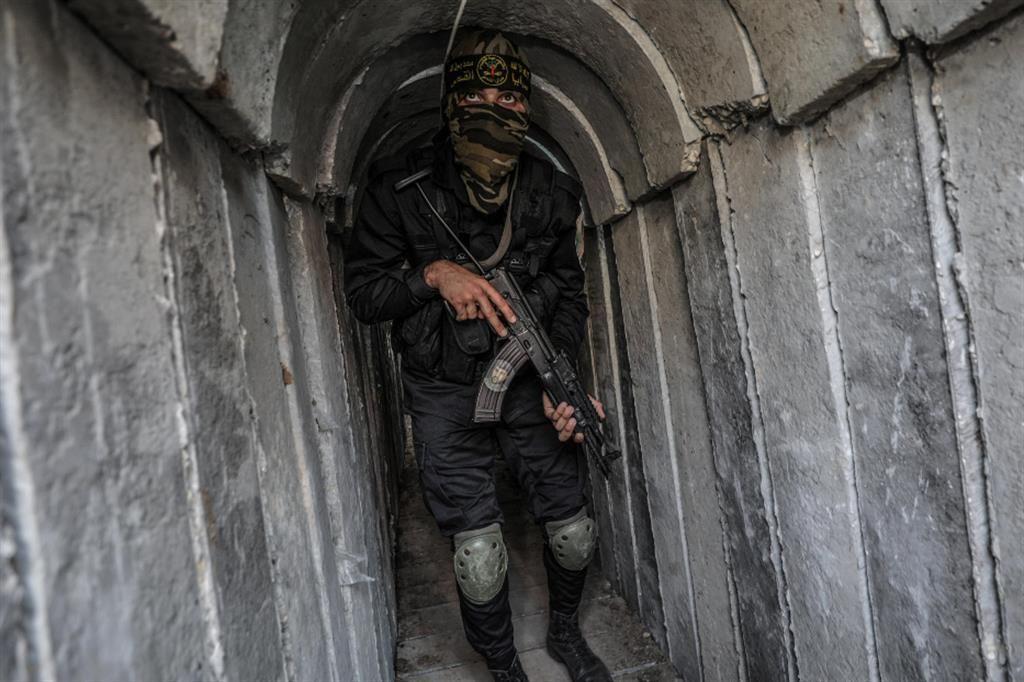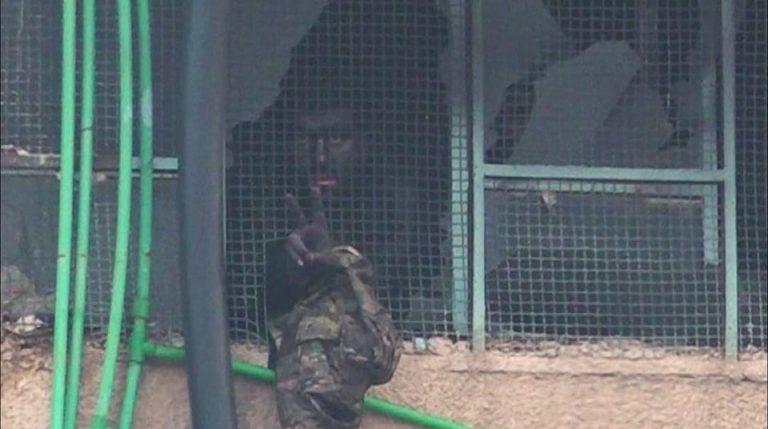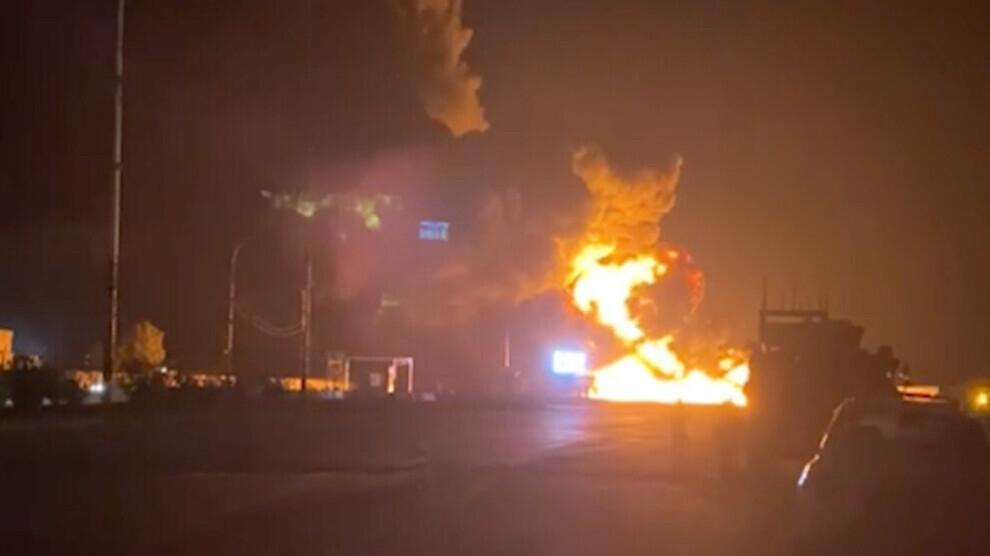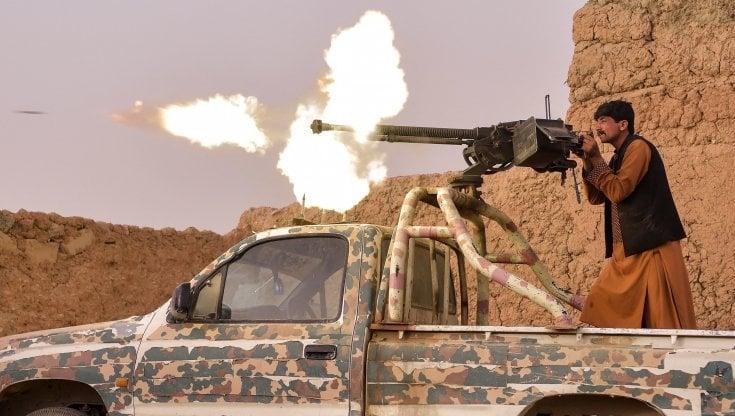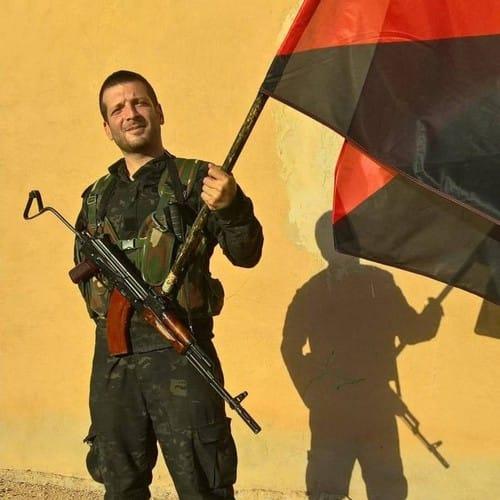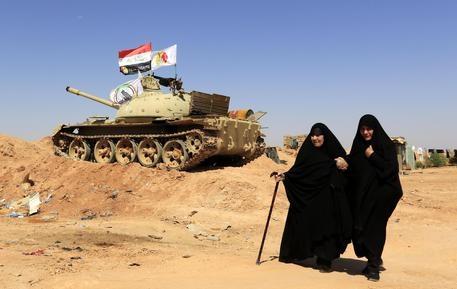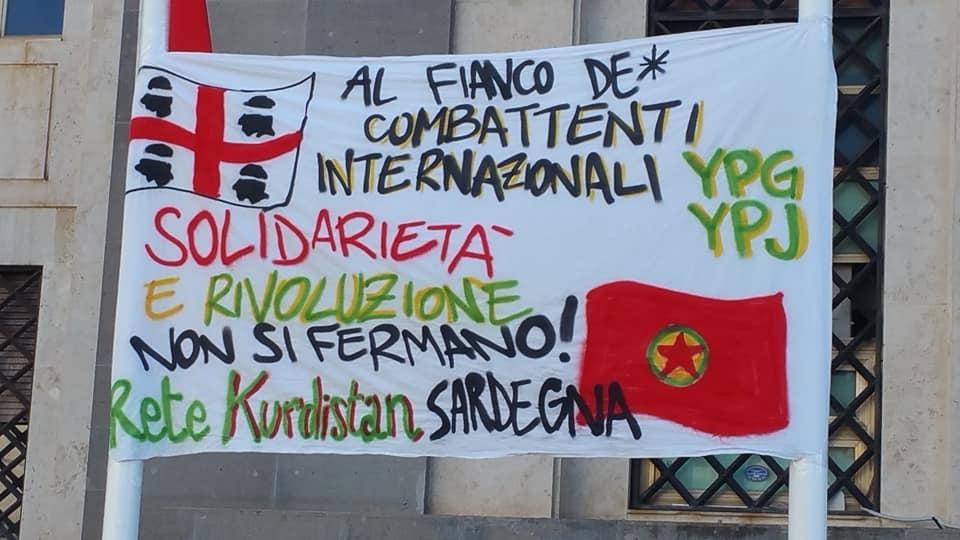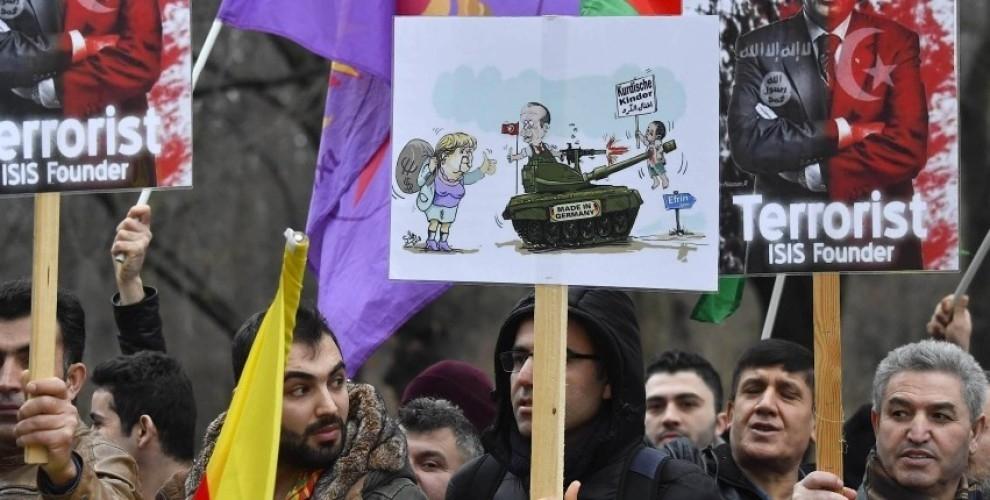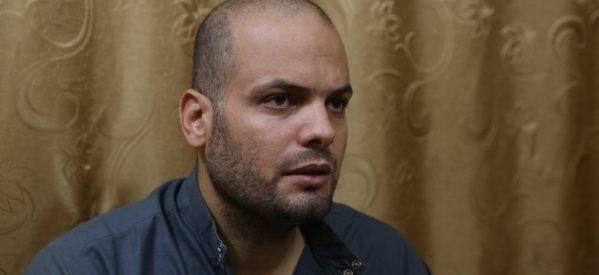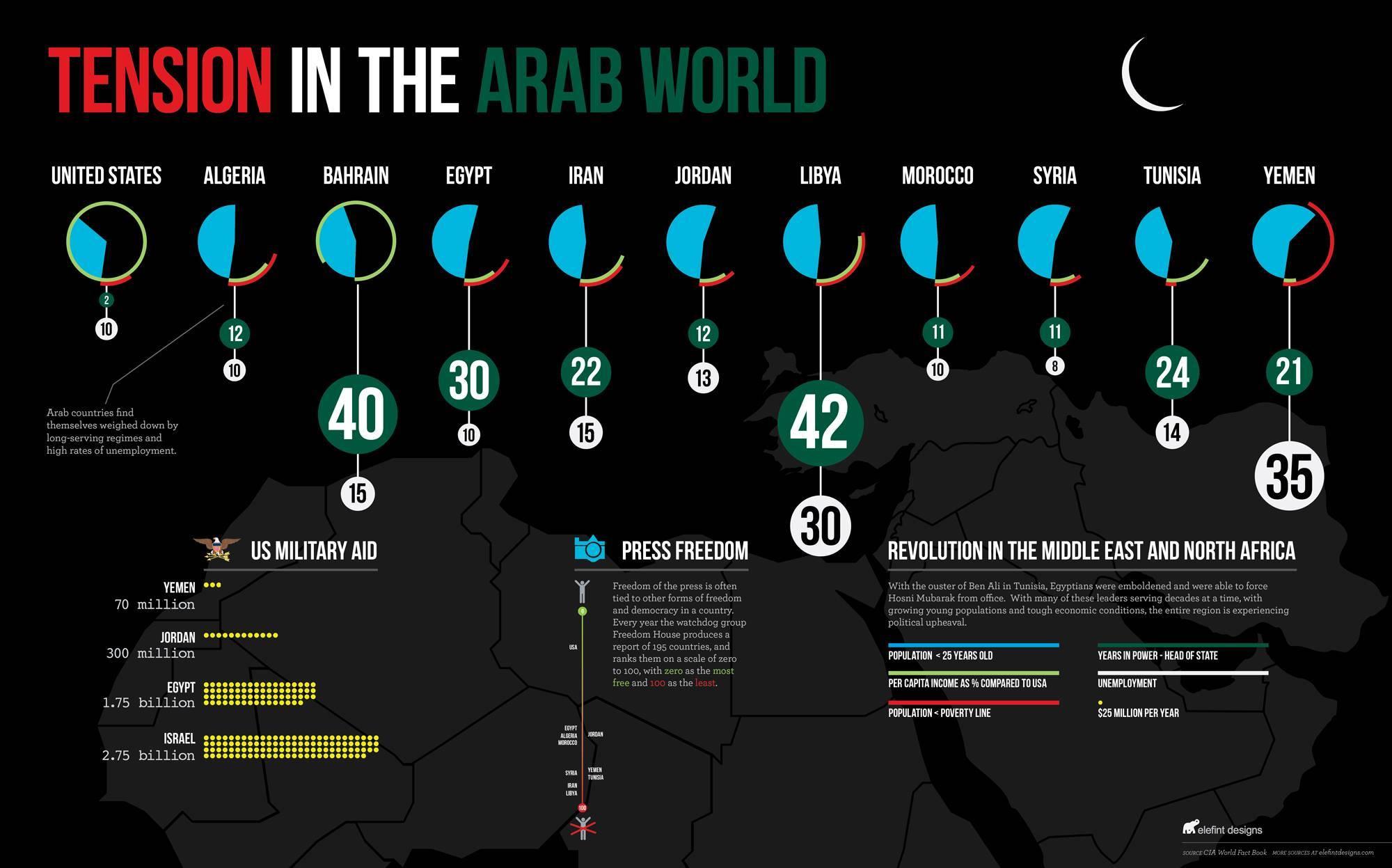
For a materialist reading of Middle-Eastern Issues
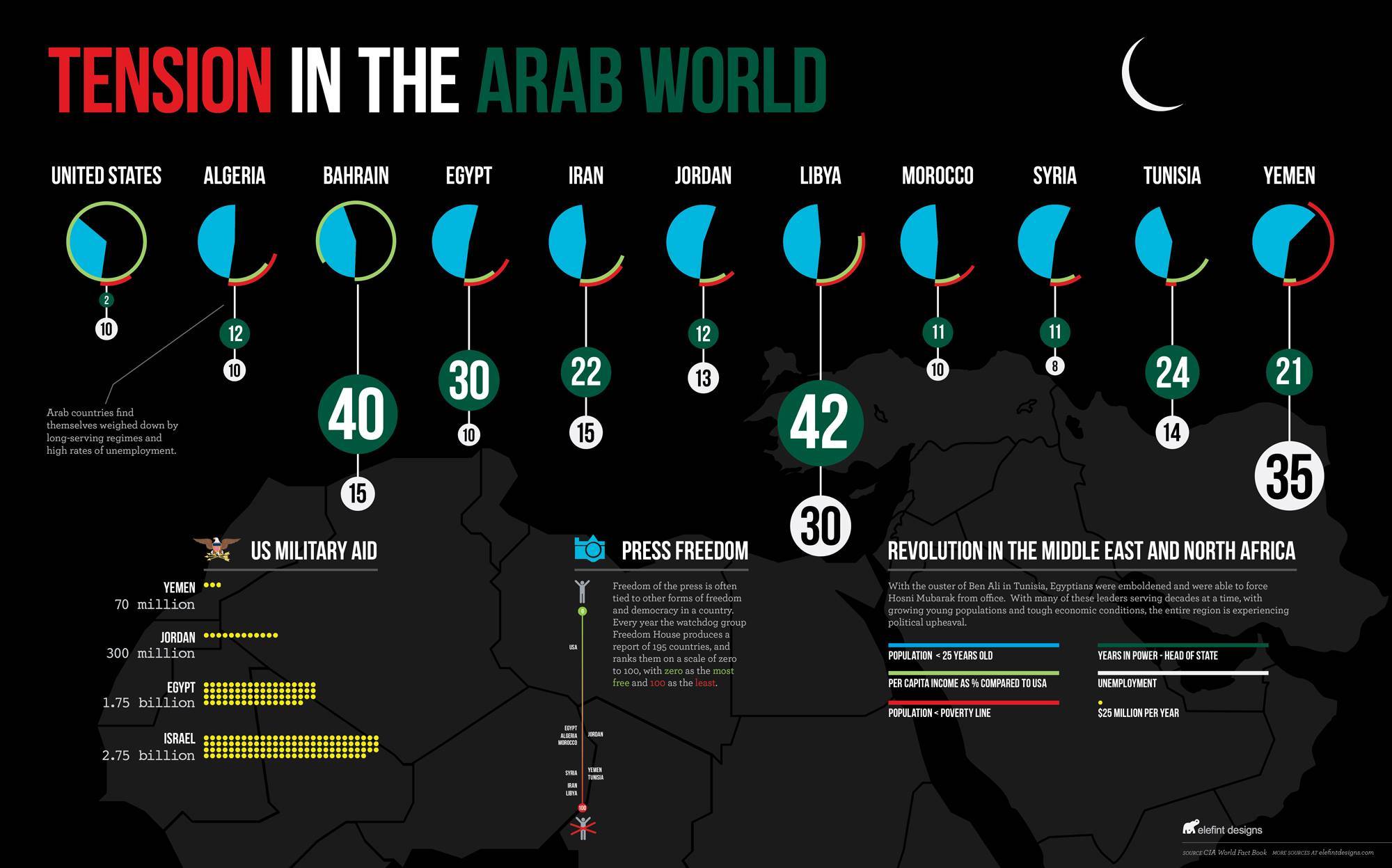
INTRODUCTION
The conquests of Daesh (the Arabic name of what it is erroneously translated in Italy as Islamic State) in Iraq and Syria are just the latest events exploited by the mainstream media in order to propose once again the tale of an (alleged) decadence of the Middle Eastern civilization linked to Islam.
The Western narration of Near and Middle East has a centuries-old history, which it is functional to the reproduction of some pseudo-analyses of a markedly orientalist character that use Islamic religion as a reading key, with all its supposed inability to adapt to modernity.
It not an empty abstraction, but the product of the ossification of power balances built through the years (the very definition of Middle East already presents some aspects of linguistic bias , due to the strength of those which imposed this label) and the product of material and intellectual energies of man.
As Edward Said masterfully presented in his “Orientalism”, this knowledge became a science in the West, and the two-fold epistemologic and ontological distinction between the East on one hand and the West on the other hand became a narration and a taxonomic reading of knowledge which is now universally accepted both in the academic field and outside of it.
What we have been saying till now is paradigmatic, in the narration of the facts about the Middle East that are proposed again to us. Let’s consider, for example, the ISIS/Daesh. In the Western narration of the crimes which were carried out by this group, the “Islamic” adjective is continuously proposed again, as if inside an alleged hierarchy of values linked to the religion of Islam a justification for the cutting of heads, the use of children soldiers and the destruction of historical and archaeological heritage of past civilizations was to be found.
On the contrary no one remotely considered to stick the label of “Jewish” or “Judaist” crime to the gruesome murder of a 18-months old child, carried out some weeks ago by some Israeli settlers: while actually radical Jewish sects that preach violence against the “Arab” enemy by quoting the Torah are not considered representing Judaism by any means, ISIS/Daesh was granted the power of talking about Islamic umma and to represent Islam as a whole.
ORIENTALISM 2.0
To talk about intellectual dishonesty is the least, but there is more. There is a science beyond that, an organization of narration, in other words there is an epistemology that is functional to the reproduction of certain discourses: it is that orientalism presented by Edward Said (Orientalism, 1978).
And this hegemonic external narration of the area and of its events also bounces upon the same players in the area: many models of collective imaginery remain bound to a reified and idealized past of lost greatness – that of Caliphate and Islamic Umma – and where the failure was made revisiting Islam’s primal schism about succession to the Prophet – Sunni vs Shia. This perspective was, in part, the result of the islamization of societies carried out, with the approval of Western powers, after the ’60, in order to oppose the secularist Arab nationalism.
Coming back to the external vision, the hegemonic framework today of narrating the events and the societies of the region through the ethnic and religious element – Islam as a total social fact, as an element that would be framing all the dynamics of society and the (alleged) Bedouin tribalism of clan solidarity (asabiyya) does not take into account the complexity of social organization and of the variations – social and technical composition, social, labour, environmental, ecologic and economic organization – that the region suffered (Hinnebusch, Authoritarian persistence, democratization theory and the Middle East: an overview and critique, 2006).
At the same time this narration, that took root also thanks to the American academicism and scientific literature made the strength of the belonging to specific communities its scientific mantra, thus contributing to the abuse of “national” ethnic-anthropological concepts – with irreducible dichotomies between Arab-Sunni majority vs minorities and religious and ethnic sects. These were craftily exploited by mainstream media and by the academic circles themselves, thus contributing to shift the class of the problem from the political level to the ethnic and religious one, craftily focused on the elements of difference instead than those of sharing.
A couple sets of problems can be found here: one is that tied to the strong influence of the external powers on the region – colonization, geopolitical influences – that (second problem) craftily exploited precise groups, bringers of specific collective memories and historical-religious and ethnical heritage, thus perpetrating their own dominion on the area and on its narration.
FOR A SOCIAL HISTORY OF MIDDLE EAST
Intellectual integrity should start again instead by a separation between the monotonous religious anthropology, and concentrate instead on the history of social, political and secular organization of the societies in the middle-eastern, area, those in which Islam is the prevalent religion.
To face Islam as a religion, by reorganizing the historical perception between a “sacred” history – where societies narrate themselves and give themselves foundational myths supporting their own identity and faith – and a “secular-sociological” one, focused on the peoples, and comparatively on their experience and their shifts. By proceeding in that way, the hierarchy of the issues would be restored from the ethnical-religious level to the political one, emphasizing how still material factors can explain the dialectics of middle-eastern world; and not alleged “moral shortcomings” – such as inability by Islam to adapt to modernity, clan solidarity… – intrinsic to the peoples of the region.
Thus the lack of democracy and the persistence of authoritarianism, in the same way of the low economic and social growth levels, can be explained: no more as products of the survival of traditional associative forms (asabiyya) more tolerant towards authoritarian leadership, but as result of precise material structures. In that way, the authoritarianism of the rentier and neo-patrimonial state will explain the consequent distorsions of the oil economy (Schwartz, The political economy of state-formation in the Arab Middle east: rentier states, economic reform and democratization, 2008).
First, in this kind of governance, the state consensus and the processes of state-building have been managed (and they still are) in terms of integration and cooptation of entire social classes that, in exchange for a free welfare state guarantee their loyalty to the leadership, thus perpetuating the social paralysis and barriers against democratic change.
Thus the state-citizen connection is far from being a social pact given by clear constitutional rules, but it is based on economic relationships at different degrees of privilege, depending on the access to the rulers’ rent-allocation, that guarantees the existence of a welfare state and state subsidies.
Second, in these countries where the sources of economic rent are concentrated in the hands of the state, and when these are totally dependent on global economy and its developments (oil fluctuations), the character of economy of passive rent has been amplified by the integration in relationships of structural center-periphery dependency.
Within the international division of labour, the economy of Middle East thus remained connected to the global economy only through the export of raw or semi-raw materials.
The geopolitical “rent” – formerly the USA vs URSS one, now the China vs Russia vs USA one – added up to these ones; and it has been cleverly exploited by the regional leadership, in order to allow the countries in the area to receive massive aid from all the competitors.
That is to say that, given the rentier mentality, there was no interest in mastering the industrial technologies and science, and the only economic matter at stake was the appropriation of the rent-allocating State. With all the consequent repercussions and the distortions on society: a partial and superficial industrialization, an enclave oil industry without any connections, a dutch syndrome, a brain run, real estate boom, high import of external technology…
And from the beginning of XX century everything was used against all attempts of change of the social order in a progressive way: from the religious ideology with the resort to sharia’a to the clan solidarity, passing through state socialisms and counter-revolutions.
Moreover, in the destabilization of the region, colonialism and neocolonialism had a preponderant effect – we should think about the legacy of the American invasion of Iraq in 2003 and to the exacerbation of the sectarian discourse.Together with the material structures of the economic patterns – and the consequent distortion of the rent economy, the demographic growth and the climate change are pivotal categories in order to understand the present situation in the area.
An area in which specific groups like ISIS/Daesh – mere representatives of regional regimes that uses in a functional way the religious rhetorics in order to change the power relations to their advantage – can find a fertile ground. And it is the very same demographic discourse that determined the rise of the Arab springs: and not, like many mainstream media have been interpreting an elusive “Islamic awakening” of the populations of the region.
The 28% of the population is actually included in the 15-28 years age range, while more of the 60% of population is below thr 25 years threshold, with an average age of 22, in comparison to a global one of 28. Meanwhile the average youth unemployment rate stands at 35%, with peaks of 45-50% in some states of the region, in view of a most high level of enrollings and graduations in the universities.
The ossification of the social patchwork and the political paralysis, the latter being enhanced by the corruption and coercion of the regional states, have been put into discussion by the socio-political awakening of these “excesses”, made up by newly urbanized poor classes which were excluded by the distribution of the rent and/or by the middle and educated classes, which had enough of the cooptation and of being relegated on the fringes of political representation.
And it is from these same excesses and from the rebirth/continuation of the Arab springs – which exploded on the wave of a real demolition of the predatory and patrimonialist socio-economic structures – that an answer of social justice and of recomposition of the forces of change in the region rises.
We can then try to explain the decadence and the destabilization of the area by keeping referring to the alleged incapability of Islamic religion to adapt to modernity, or blame on Arabs – for example, as Hisham Melhem does on Politico – the collapse of the region and the existence of fanatic groups like ISIS. After all, many very Islamist thinkers came to the same conclusions: the Arab-Islamic world is punished because of the moral transience of its own customs, now too decadent.
We can stop using these dummy categories, though, and analyze in a scientific and dialectic manner the past and present of the area, where the solution of the economic and social issue may come first, along with the end of foreign meddling and the pervasive dependance of many regional states from an external patron.
L.C.
Ti è piaciuto questo articolo? Infoaut è un network indipendente che si basa sul lavoro volontario e militante di molte persone. Puoi darci una mano diffondendo i nostri articoli, approfondimenti e reportage ad un pubblico il più vasto possibile e supportarci iscrivendoti al nostro canale telegram, o seguendo le nostre pagine social di facebook, instagram e youtube.












